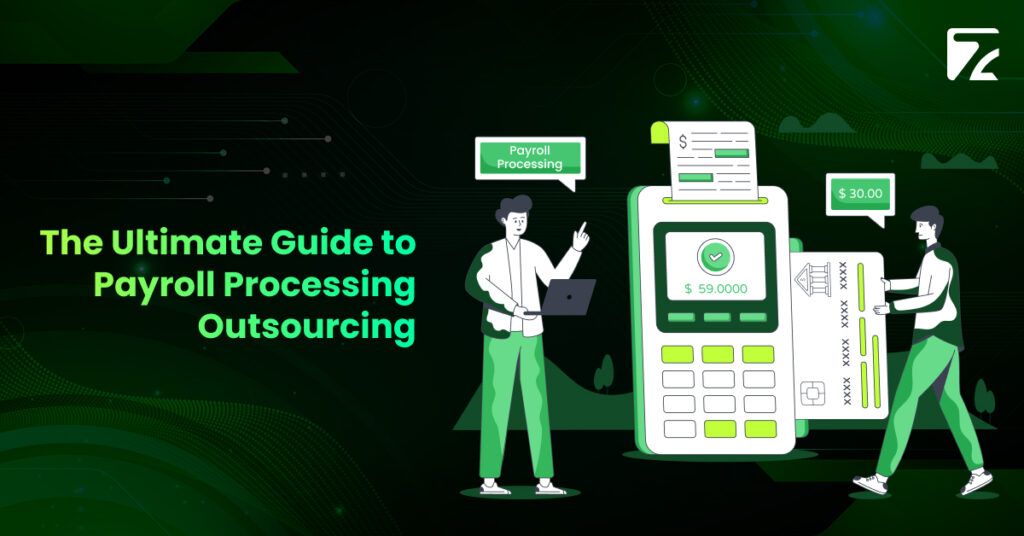The Ultimate Guide to Payroll Processing Outsourcing

Streamline Your Business: The Ultimate Guide to Payroll Processing Outsourcing [boomdevs_toc] Managing payroll is a crucial yet complicated task for businesses of all sizes. It goes beyond just calculating employee wages; it involves adhering to complex tax regulations, managing benefits, and maintaining meticulous records. Outsourcing payroll processing can greatly simplify these processes, allowing businesses to focus on growth and strategic initiatives. Understanding Payroll Processing Outsourcing Payroll processing outsourcing involves contracting an external provider to handle payroll-related tasks such as salary calculations, tax filings, benefit administration, and compliance management. It allows organizations to delegate the complex and time consuming payroll operations to specialized experts, enabling them to focus on core business activities. This strategic decision typically results in enhanced accuracy, improved compliance with regulations, cost reductions, and increased organizational efficiency. How Does Payroll Outsourcing Work? Typically, payroll outsourcing involves transferring payroll management tasks to a specialized external provider who manages various essential payroll functions: Salary and Wages Calculation: Accurate and timely calculation of employee pay, considering regular wages, overtime, bonuses, and applicable deductions. Payroll Tax Filing and Compliance: Ensuring timely and accurate filing of payroll taxes, adhering strictly to changing tax laws and regulations at federal, state, and local levels. Employee Benefits Management: Managing employee benefits such as health insurance, retirement contributions, pension schemes, and other compensation-related perks. Payroll Audits and Reconciliations: Regular audits and reconciliations to ensure payroll accuracy, compliance, and prompt identification and correction of discrepancies. Reporting and Documentation: Providing comprehensive payroll reports and documentation required for internal audits, regulatory reviews, and financial analysis. Employee Onboarding and Offboarding Procedures: Managing payroll adjustments associated with new hires and employee exits, ensuring compliance and efficiency during workforce changes. Regulatory Compliance: Keeping abreast of continuously evolving payroll laws and regulations at federal, state, and local levels, ensuring consistent adherence to legal standards. Payroll Technology Integration: Leveraging advanced technology and software platforms to streamline payroll processes, enhance efficiency, and provide detailed analytics. Advantages of Payroll Processing Outsourcing Payroll processing is a crucial yet intricate task that businesses must handle accurately to maintain employee satisfaction and regulatory compliance. But is managing payroll internally always the best choice for your company? Let’s explore the key advantages of outsourcing your payroll to specialized providers. Enhanced Efficiency When you outsource payroll, you’re handing over repetitive administrative tasks to experts who specialize in them. Imagine trying to juggle payroll deadlines, salary calculations, and tax filings while also running core business operations doesn’t sound efficient, right? By outsourcing payroll, businesses significantly reduce administrative overhead, freeing internal teams from tedious manual tasks. This allows your team to channel their energy and resources into strategic initiatives like improving products, increasing customer satisfaction, and accelerating overall growth. Improved Compliance and Accuracy Payroll compliance isn’t just about paying salaries on time it’s also about navigating the ever-changing landscape of taxation, labor laws, and regulations. Keeping up-to-date is daunting, and even small mistakes can result in hefty penalties. Professional payroll outsourcing companies constantly monitor legislative updates, ensuring your payroll processes remain compliant with local and international laws. Their expertise significantly reduces the risk of costly compliance mistakes. Cost Savings Payroll processing in-house involves hidden costs like software licensing, training payroll staff, maintaining payroll systems, and correcting costly errors. Outsourcing payroll helps you clearly define your expenses upfront, making budgeting more predictable and straightforward. Access to Advanced Technologies Specialized payroll providers use cutting-edge technology and software systems to streamline payroll operations. When outsourcing payroll processing, your business gains instant access to these sophisticated tools without heavy investments or ongoing maintenance costs. Enhanced Data Security Payroll data is sensitive, confidential information. Payroll providers understand this critical aspect and invest significantly in securing their infrastructure. By outsourcing payroll, your business benefits from robust security protocols, encryption methods, and secure data storage systems, greatly minimizing the risk of breaches or unauthorized access. Providers typically implement stringent security standards such as ISO certifications and comply with data protection regulations, providing peace of mind that your employee information remains protected and secure. Scalability and Flexibility Your business needs might fluctuate especially if you’re in a growth phase or experience seasonal variations. Payroll outsourcing offers unparalleled flexibility, adapting quickly to your business’s changing demands. For example, during peak seasons, such as holidays or major sales events, outsourcing payroll can help efficiently manage temporary staff payroll without disrupting regular operations or burdening your internal HR team. Common Challenges and Solutions in Payroll Outsourcing Maintaining Control Organizations often fear losing direct oversight when outsourcing payroll. To maintain adequate control: Clear Communication: Set regular checkpoints and maintain open, transparent communication with your outsourcing provider to stay updated. Defined Expectations: Clearly specify your expectations through comprehensive Service Level Agreements (SLAs). Regular Reporting: Implement routine reporting mechanisms, so you’re consistently informed about payroll operations. Data Privacy Handing over sensitive employee information externally naturally raises privacy concerns. Choose Reputable Providers: Partner with companies that hold recognized data security certifications (e.g., ISO 27001) and demonstrate robust security practices. Confidentiality Agreements: Ensure contracts include strict confidentiality clauses outlining clear responsibilities and penalties for data breaches or misuse. Continuous Audits: Regularly audit your provider’s security measures to guarantee compliance with your privacy standards. Hidden Costs Unexpected costs can disrupt your budget and negate the cost-saving advantages of outsourcing. Thorough Contract Reviews: Carefully review agreements to identify any unclear or hidden charges before signing. Transparency: Select providers offering transparent pricing models and clear communication about potential extra charges. Regular Monitoring: Routinely monitor invoices and service performance to ensure compliance with agreed-upon costs and services. Steps for Successfully Outsourcing Payroll Conducting a Payroll Audit Start by thoroughly auditing your existing payroll processes. Identify areas where inefficiencies, inaccuracies, or compliance risks frequently arise. For instance, look at delays in salary distribution, frequent payroll errors, or challenges in tax filing. A detailed audit helps clarify your business’s needs and ensures you clearly define expectations with the outsourcing provider. Transition Planning Create a structured transition plan that clearly defines the scope, timelines, and milestones involved in shifting payroll functions externally. Ensure the plan outlines
